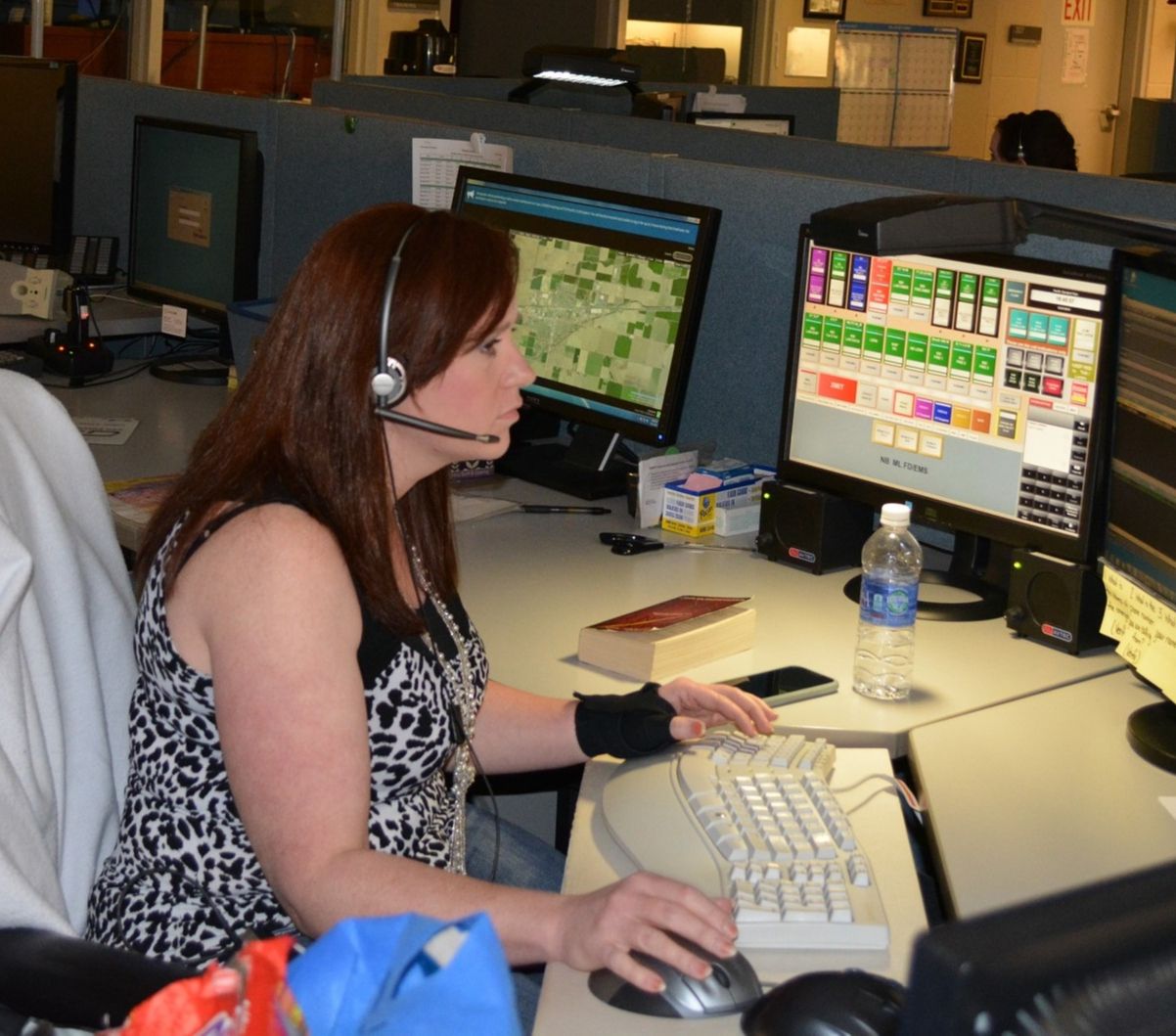911 Operator Training

EducationA high school diploma or GED may be all the formal education necessary to start a career in emergency telecommunications. Depending on the hiring agency, some college coursework may be a requirement for employment. It’s not unusual for emergency agencies to require applicants to have a two- or four-year degree in computer science, criminal justice or communications.
Some vocational schools offer an emergency dispatcher certificate. Sample courses for this certificate include emergency medical dispatching, stress management, crisis intervention, call-taking techniques and communications. Previous Experience and On-the-Job TrainingPrevious experience makes 911 dispatcher training easier.
Becoming a 911 Dispatcher: Psychological Exam and Physical - Duration: 13:30. Laura Bryant 12,028 views. Why I am No Longer a 9-1-1 Dispatcher - Duration: 14:23.
For example, work experience at a call center can provide a basic understanding of how to handle calls and how the calls are routed. Customer service jobs provide experience listening and responding to customers’ needs. A dispatcher needs to have good listening skills and be able to solve problems quickly. Once a new dispatcher is hired, he receives extensive training on the equipment used by the emergency service. This training includes classroom instruction as well as hands-on experience. During the training period, the new hire can expect close supervision to see how he reacts in a variety of situations.
CertificationLicensure and certification for 911 dispatchers varies by state. The National Academies of Emergency Dispatch, or NAED, offers certification courses that often satisfy any state licensure requirements. Certification is specific for emergency fire or medical dispatching or more generalized for emergency telecommunications. Once a dispatcher successfully passes the certification exam, he must renew the certification and take 24 to 30 hours of additional training every two years. Job OutlookThe job outlook for 911 dispatchers is predicted to grow at an average rate of 12 percent between 2010 and 2020 according to the U.S.
Bureau of Labor Statistics. As the general population ages, the need for dispatchers is likely to increase.
The average salary of dispatchers was $35,370 in 2010. One way to increase salary for a dispatcher is to take on a supervisory role within an emergency call center. 2016 Salary Information for Police, Fire, and Ambulance DispatchersPolice, fire, and ambulance dispatchers earned a median annual salary of $38,870 in 2016, according to the U.S. Bureau of Labor Statistics. On the low end, police, fire, and ambulance dispatchers earned a 25th percentile salary of $30,830, meaning 75 percent earned more than this amount. The 75th percentile salary is $49,570, meaning 25 percent earn more.
Zumbi blocks 3d download free. In 2016, 98,600 people were employed in the U.S. As police, fire, and ambulance dispatchers.
General RequirementsAccording to the Bureau of Labor Statistics, a 911 operator should possess certain skills to allow him or her to succeed in this high-pressure career. These include empathy for the caller, excellent listening skills and an ability to do several things at once. Leadership is also important, as the operator may need to take charge and coordinate the caller and the emergency personnel during a crisis, with little help from anyone else.
A 911 operator also must be able to solve problems efficiently, figuring out quickly which calls are the most important and what kind of help is needed at which location. Basic EducationThere is no national standard set for the educational requirements necessary to become an emergency dispatcher, and in many cases the only education needed is either a high school diploma or a GED certificate. In some instances employers prefer operators to have either an associate or a bachelor’s degree in a relevant field, such as communications, criminal justice or computer science. Candidates with degrees may stand out from the other applicants and be more successful than those without as much education, even where college is not required, especially if there is a lot of competition for the job. Specialized TrainingSpecific job training may be offered in some locations, especially if the state requires that 911 operators be certified before being allowed to work. These courses typically include 40 hours of combined classroom and on-the-job work, covering such topics as the local streets and geography, map reading, how to use the radio and operation of the software for computer-aided dispatch.
Additional training may include instruction in the handling of child abductions, suicide threats and other unique emergencies. Some operators receive further training that qualifies them as emergency medical dispatchers, and they can then give medical advice over the phone.
AdvancementHow you advance as a 911 operator depends on the needs of your county or town as well as your abilities. One way to advance is to ensure you have the training you need to be able to take on more responsibility.
Join professional organizations such as the National Emergency Number Association, the National Academies of Emergency Dispatch and the Association of Public-Safety Communications Officials. Sign up for training through these groups and complete the courses that interest you, so you are ready to become an emergency medical dispatcher or a call center manager when the opportunity arises. 2016 Salary Information for Police, Fire, and Ambulance DispatchersPolice, fire, and ambulance dispatchers earned a median annual salary of $38,870 in 2016, according to the U.S. Bureau of Labor Statistics. On the low end, police, fire, and ambulance dispatchers earned a 25th percentile salary of $30,830, meaning 75 percent earned more than this amount. The 75th percentile salary is $49,570, meaning 25 percent earn more. In 2016, 98,600 people were employed in the U.S.

As police, fire, and ambulance dispatchers.